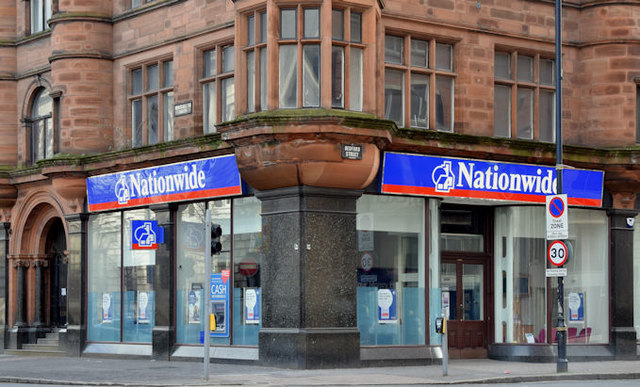The equity release market experienced a record year in 2022 with a total of 93,421 new and returning customers choosing to access their property wealth via equity release products.
Figures published by the Equity Release Council revealed this was up 23% year-on-year and was the highest rate of growth since 2018.
According to the Council’s figures, the equity release market’s total annual lending reached a record £6.2bn in 2022, up 29% from from £4.8bn in 2021 and more than double the £3.06bn recorded in 2017.
Market activity dipped in Q4, however, as market disruption following the government’s mini-Budget in September, as the Council suggested this prompted rate rises, reduced product availability and shook consumer confidence. December was also the quietest month since before the COIVD-19 pandemic, as customers took stock at the end of the year, with loan sizes reduced in Q4.
Between October and December, the total number of new and returning equity release customers served dropped to 20,597, down from the record Q3 2022 figure of 25,591, but still a 3% year-on-year rise from 19,975 in Q4 2021.
Customers borrowed £1.36bn of property wealth during Q4, a total marginally higher than £1.34bn a year earlier but down 20% from £1.71bn between July and September – bucking the usual trend that would see Q4 as the busiest quarter of the year, the Council stated.
Chairman of the Equity Release Council, David Burrowes, commented: “The unmet needs of the UK’s ageing population have seen the equity release market double in size since 2017, channelling decades of experience in helping older homeowners to gain financial freedom.
“Today’s equity release customers are more in control of their costs than ever before, with the right to make voluntary penalty-free partial repayments and the option of fixed early repayment charges which reduce to 0% over time.
“Factors outside the industry’s control meant 2022 ended on an unusually quiet note in December, after the mini-Budget fuelled rate rises and tightening criteria. However, releasing equity is not a choice to make on a whim, and we are encouraged by signs that customers are pausing to assess their options.
CEO at Key Later Life Finance, Will Hale, added: “While rates have increased post the mini-Budget, customers are able to take a more active approach to managing their borrowing using the ability to service interest or make ad hoc capital repayments which are common features now across modern lifetime mortgages.
“There is no doubt that borrowers and their advisers have become more cautious – and rightly so in this higher interest rate environment. However, whether the answer is downsizing, a retirement interest-only product, equity release or delaying a decision altogether, specialist advice remains vital in helping customers make the best choice for their individual circumstances.”
Latest News
-
Residential property transactions fall 24% month-on-month
-
Later life lending loans jump 5.1% in Q4 2025
-
Mortgage Awards 2026: Winners announced
-
FCA outlines proposals to close gaps in borrowers’ credit files
-
St. James’s Place closes 2025 with record FuM
-
Average LTV on UK mortgaged home drops to 59% – IMLA
Mortgage Advice Bureau and AI in the mortgage sector
Chief executive officer at Mortgage Advice Bureau, Peter Brodnicki, and founder and managing director at Heron Financial, Matt Coulson, joined content editor Dan McGrath to discuss how Mortgage Advice Bureau is using artificial intelligence to make advancements in the mortgage industry, the limitations of this technology and what 2026 will hold for the market
Perenna and the long-term fixed mortgage market

Content editor, Dan McGrath, spoke to head of product, proposition and distribution at Perenna, John Davison, to explore the long-term fixed mortgage market, the role that Perenna plays in this sector and the impact of the recent Autumn Budget
NEW BUILD IN FOCUS - NEW EPISODE OF THE MORTGAGE INSIDER PODCAST, OUT NOW

Figures from the National House-Building Council saw Q1 2025 register a 36% increase in new homes built across the UK compared with the same period last year, representing a striking development for the first-time buyer market. But with the higher cost of building, ongoing planning challenges and new and changing regulations, how sustainable is this growth? And what does it mean for brokers?
Does the North-South divide still exist in the UK housing market?

What do the most expensive parts of the country reveal about shifting demand? And why is the Manchester housing market now outperforming many southern counterparts?
In this episode of the Barclays Mortgage Insider Podcast, host Phil Spencer is joined by Lucian Cook, Head of Research at Savills, and Ross Jones, founder of Home Financial and Evolve Commercial Finance, to explore how regional trends are redefining the UK housing, mortgage and buy-to-let markets.
In this episode of the Barclays Mortgage Insider Podcast, host Phil Spencer is joined by Lucian Cook, Head of Research at Savills, and Ross Jones, founder of Home Financial and Evolve Commercial Finance, to explore how regional trends are redefining the UK housing, mortgage and buy-to-let markets.
© 2019 Perspective Publishing Privacy & Cookies











Recent Stories